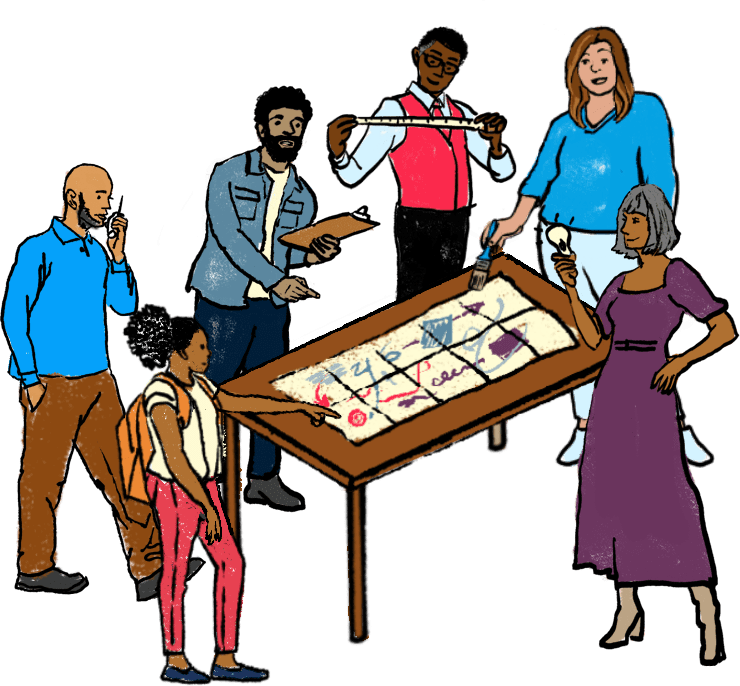About CPRL
The Center for Public Research and Leadership (CPRL) at Columbia University strives to revitalize public school systems while reinventing professional education. CPRL conducts high-impact research and consulting projects for its clients in the education sector and provides rigorous coursework, skills training, and real-world experiential learning for its graduate students who attend programs at Columbia University and across the country. By design, CPRL has the opportunity to collaborate with and coach learning leaders in various systems and to learn from and develop learning leaders through its work with graduate students.
Since its founding in 2011, CPRL has provided research and consulting support to state agencies, school districts, charter school organizations, foundations, and advocacy groups, completing 200 projects and counting. More than two-thirds of CPRL’s 500-plus alumni work in education and other public-sector leadership and management roles.
Four members of CPRL’s team coauthored The Learning Hive: Elizabeth Chu (emc2170@columbia.edu), Andrea Clay (ac4362@columbia.edu), Ayeola Kinlaw (ayeolakinlaw@gmail.com), and Meghan Snyder (mes2302@tc.columbia.edu).
Acknowledgements
We are deeply grateful to our own Learning Hive: the Center for Public Research and Leadership (CPRL) team and our colleagues, students, peers, and partners who show us what it means to lead through learning every day. Without you, The Learning Hive would not have been possible. Our hope is that you see yourselves and your work represented here.
We are especially grateful for the vision and guidance of Jim Liebman, our mentor and the founder of CPRL at Columbia University. Jim has devoted his professional life to continuous learning and to the improvement of public institutions, all in service of bettering kids’ life chances. We are thankful to be a few of the many whose careers are shaped by Jim’s leadership.
A special thanks, also, to Kimberly Austin and Amanda Cahn, coauthors of CPRL’s first Evolutionary Learning toolkit and partners in elaborating CPRL’s model, and to Bryanna Willis, whose support was invaluable in completing the book.
We thank as well the Learning Hives that have shared their work, time, and insights with us for this volume — the Baltimore City Public Schools improvement networks; the High Tech High Graduate School of Education and CARPE College Access Collaborative; former members of the Mississippi Department of Education and Barksdale Reading Institute; the New York City Consortium, Internationals, and Outward Bound High School District; and Partners in School Innovation.

